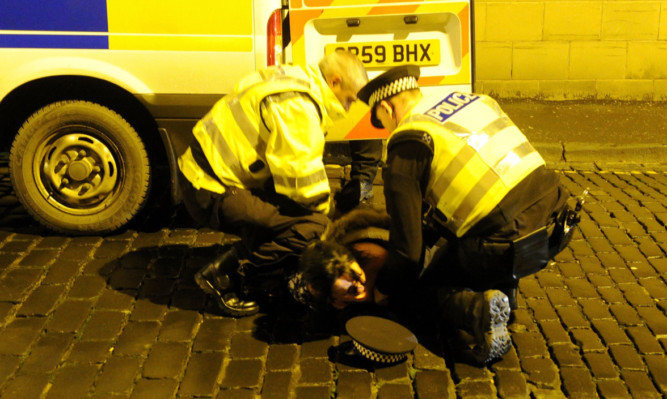I have special reason to be grateful for accident and emergency units in Scotland.
Thanks to a rather cavalier attitude to personal safety, I’ve managed to break my legs, pelvis, back, ribs and even a couple of bones in my feet over the years.
On all those occasions, I’ve been grateful for the incredible professionalism, patience and expertise of the doctors and nurses who put me back together again.
I’m sure many Courier readers have similar stories to tell (although I hope you haven’t all been quite as reckless as me). A&E is our national safety net, open 24-7 to catch us when we fall from the high wire.
So it is right, when stories emerge of an A&E crisis in Scotland, that we all should worry.
That there are problems is now unarguable. Earlier this week we found that in Fife, for example, hospitals once again missed the target to get 95% of A&E patients seen within four hours.
It follows a series of stories about dirty wards there, with trolleys contaminated with blood and operations which have been cancelled because of the lack of capacity.
Across Scotland, the picture is similar. In January, more than 3,000 patients spent more than eight hours waiting in A&E. Waits are now longer in Scotland than down south.
It needs to be said at this point that the doctors and nurses on the front line are performing heroics to keep the show on the road.
The head of the British Medical Association in Scotland said recently that the NHS was operating on the goodwill of staff. He’s right. Without that commitment to our most treasured public service the NHS would collapse tomorrow.
However, we also need to be much smarter as a society about how we sort this crisis out.
Time and time again at the Scottish Parliament, I listen on as Labour and the SNP engage in a pointless game of one-upmanship over the NHS.
Labour accuses the SNP of letting the service corrode on their watch. The SNP pulls out statistics to show that things were even worse under Labour. And after the whole meaningless slanging match is over, nobody is any the wiser.
Let’s listen instead to the professionals.
I visited doctors at one of our busiest A&E Units in Edinburgh earlier this week. They told me of some basic common sense ways to improve matters.
During some parts of the week, they are able to help elderly patients get quickly in and out of hospital because they are well-connected to social care nearby.
However, if that same elderly person goes into hospital at the wrong time in the week say at weekends social care isn’t available and that person ends up being admitted to hospital for days.
Then you get a domino effect beds get filled, operations cancelled and the whole system backs up.
The Scottish Conservatives came up with one idea to try and help this week.
I don’t think doctors and nurses in A&E should be mopping up after drunks on a Friday and Saturday night just because they’re so inebriated they can’t make it home.
As many as 21,000 people clog up A&E in Scotland every year just because they’re drunk.
So we want to see special treatment centres in our major cities where a drunk person is sent to sober up.
It may help reduce those waits and free up time for doctors to deal with genuine cases.
I also think we should listen more to people like Dr Barry Klaassen, an A&E consultant at Ninewells hospital.
Speaking to the Courier last month, he pointed out how his unit had got on top of long waits by telling people with non-emergency cases that they were in the wrong place and because of the good work of local GPs, who only sent patients to A&E if it was necessary.
“It’s not rocket science,” he said and the evidence backs him up.
Last week’s figures showed Ninewells sees 99% of patients within four hours.
What this tells me is something simple. Smarter government and better management can ease the A&E crisis. But we can help too by treating our NHS with respect.
It’s right that the NHS is free at the point of use. But we still have a responsibility to look after it as well.
